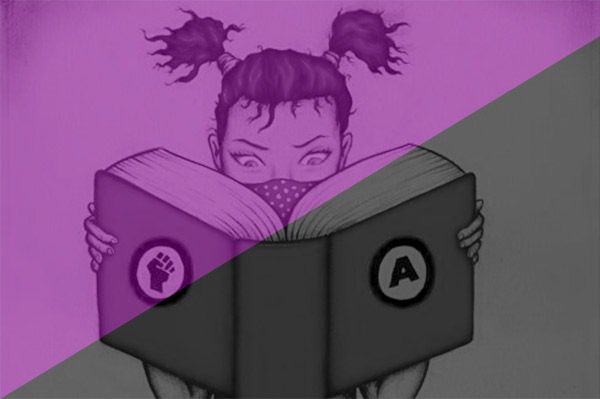Over 30 years of anarchist writing from Ireland listed under hundreds of topics
Basic Anarchism
Homelessness: Shouldn't We Just Look After 'Our Own'?
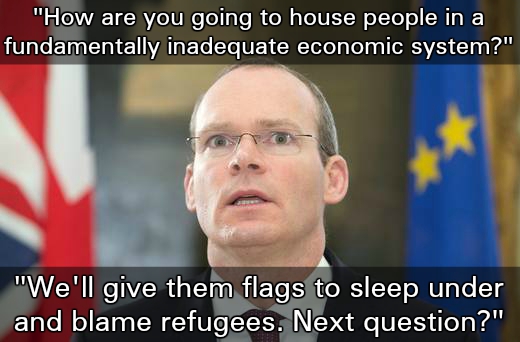 When it comes to housing, most of us just want to sort everyone out because everyone needs a home regardless of who they are. However, occasionally an issue is raised about who the homeless are:
When it comes to housing, most of us just want to sort everyone out because everyone needs a home regardless of who they are. However, occasionally an issue is raised about who the homeless are:
'Are all the homeless people Irish? And if so how can the government find houses for the refugees coming into Ireland and not their own people?'
There are lots of people in high places who benefit from us thinking that the reason for homelessness in Ireland is refugees and other migrants. Or that these people are causing 'us' a big problem. It's understandable why some people believe that, after all the media spreads this message constantly, but it's just not accurate.
What's the Incentive to Work in an Anarchist Society?
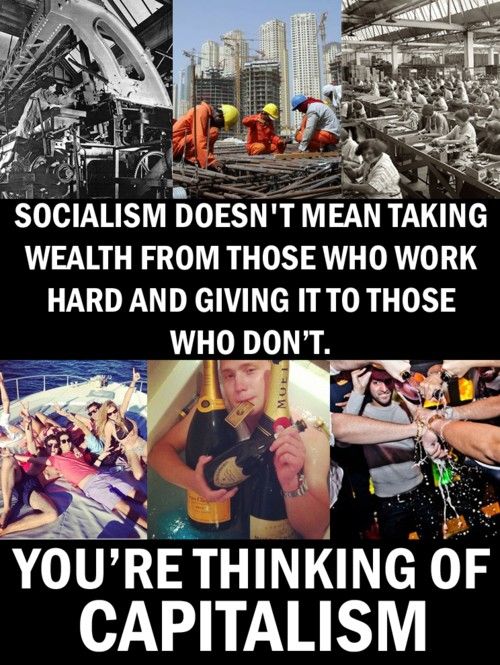 One of the most common arguments against the establishment of Anarchist Socialism is that there would be no incentive to work in a new, future society - leading to widespread apathy and laziness among the general population, with a few carrying the burden of the overwhelming majority at best and at worst nothing will be done at all. The aim of this piece is to highlight that the opposite is instead true - that in a socialist society there will even more of an incentive to work productively (in the capitalist sense) and to contribute to the communal pot which we can all then draw from.
One of the most common arguments against the establishment of Anarchist Socialism is that there would be no incentive to work in a new, future society - leading to widespread apathy and laziness among the general population, with a few carrying the burden of the overwhelming majority at best and at worst nothing will be done at all. The aim of this piece is to highlight that the opposite is instead true - that in a socialist society there will even more of an incentive to work productively (in the capitalist sense) and to contribute to the communal pot which we can all then draw from.
Firstly we should reject the capitalist ethos of what is productive labour. To summarise under capitalism productive labour is valued by how much profit can be made in a transaction of goods, services or ficticous capital - not by how valuable it is on a human level. Take for instance stock brokers who get enormous pay checks for betting on and moving currency or goods around the world, while mothers and the care givers of children get next to nothing, becoming slaves to charity, the state or their partners (possible all of these) to support them in the rearing and socialisation of children, so arguably one of the most important jobs in society gets no remuneration.
What is 'Self-Organisation'? A Basic Introduction
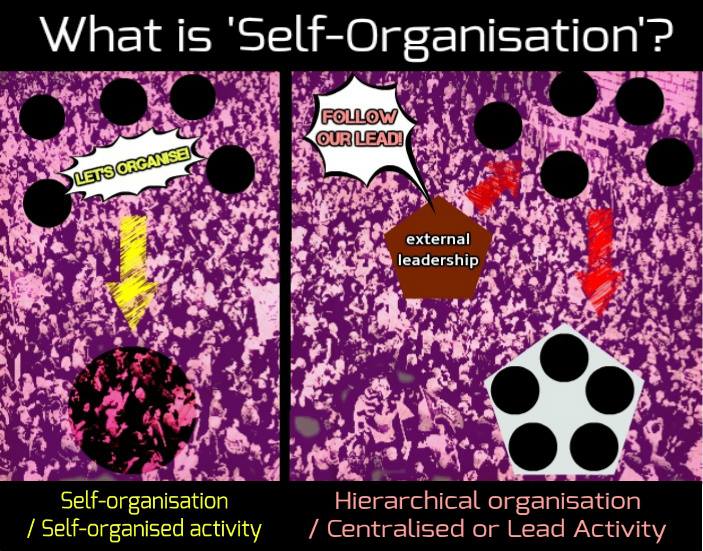 What is 'self-organisation'?
What is 'self-organisation'?
Listen to anarchists for long enough, and you'll hear us praising the 'self-organisation' of various movements or groups and insisting that political activity needs to be more 'self-organised'. But what does this mean? Why is this important?
It can be an odd-sounding term, but basically 'self-organisation' is doing stuff without relying on or waiting for external leadership or a central authority. A 'self-organised' movement doesn't wait for parties, unions, or whatever leader, to give it orders. A 'self-organised' group isn't controlled from the top-down. Self-organisation – like a related idea, 'self-management' – is at the core of anarchism. It makes us more effective, and gives us an opportunity to practice real democracy.
Anarchists: Against Laws and the State, Against Poverty and Violence
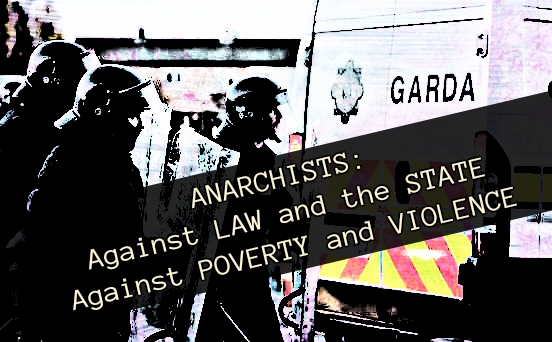 Why It’s Right to Resist the Government
Why It’s Right to Resist the Government
“The law is essentially the weapon of the privileged, it is made by them for the purpose of enshrining their power and the people need to dismantle it entirely if they want to be genuinely free” – Errico Malatesta
Does this mean anarchists are against laws? Anarchists are against laws that are created by the rich and the privileged layer of society which are used in their favour. These same laws are used to exploit and oppress the rest of society. These laws are designed to give as little as possible to people.
Squatting & the property question - Personal Possessions & Communal Property v Private Property
After an illegal eviction on Phibsborough Rd. in June much debate arose surrounding the legitimacy of the squatters and their rights to take over empty and unused properties and put them to use. This piece looking at the issue of squatting and property rights was written by a WSM member and an An Spreach member who was evicted on that day from the property.
Refusing to Wait: Anarchism and Intersectionality - "Without justice there can be no love."--bell hooks
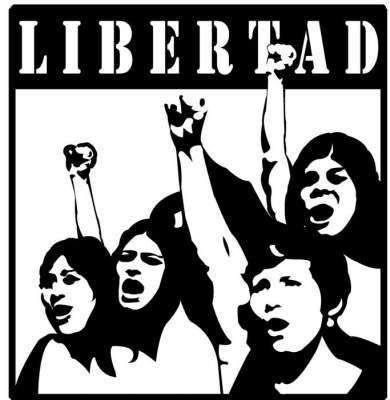 Anarchism can learn a lot from the feminist movement. In many respects it already has. Anarcha-feminists have developed analyses of patriarchy that link it to the state form. We have learned from the slogan that "the personal is political" (e.g. men who espouse equality between all genders should treat the women in their lives with dignity and respect). We have learned that no revolutionary project can be complete while men systematically dominate and exploit women; that socialism is a rather empty goal--even if it is "stateless"--if men's domination of women is left intact.
Anarchism can learn a lot from the feminist movement. In many respects it already has. Anarcha-feminists have developed analyses of patriarchy that link it to the state form. We have learned from the slogan that "the personal is political" (e.g. men who espouse equality between all genders should treat the women in their lives with dignity and respect). We have learned that no revolutionary project can be complete while men systematically dominate and exploit women; that socialism is a rather empty goal--even if it is "stateless"--if men's domination of women is left intact.
Why capitalism can't sort out the worlds problems
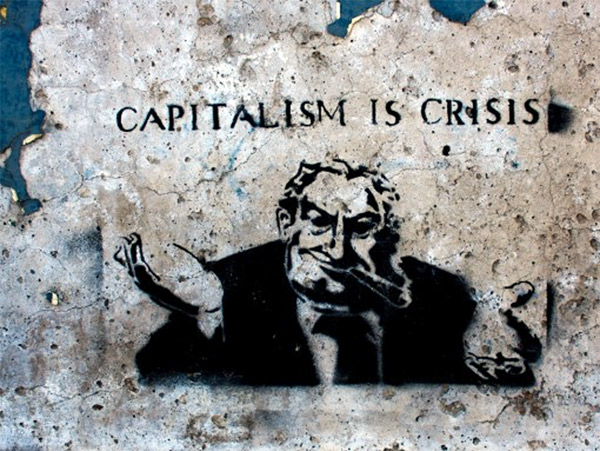 The list of jobs to be done in Ireland is endless. Houses need to be built, roads need to be repaired, hospitals and schools need to be adequately staffed. At the same time large number of pople are looking for work but unabkle to find it. Why can't these jobs be given to those who want them?
The list of jobs to be done in Ireland is endless. Houses need to be built, roads need to be repaired, hospitals and schools need to be adequately staffed. At the same time large number of pople are looking for work but unabkle to find it. Why can't these jobs be given to those who want them?
Thinking about Anarchism - Anarchism and the State
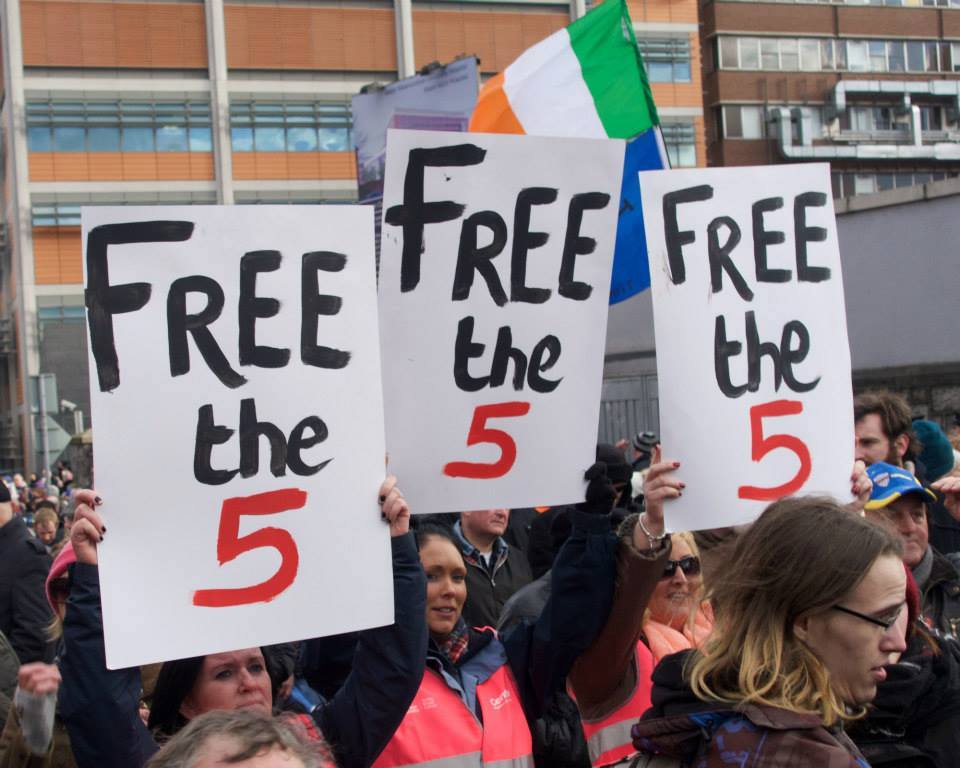 Ever wonder why the Gardaí show up in large numbers when you’re trying to stop water meters in your estate, but haven’t got the resources to come straight out when you think your neighbour’s house is being burgled? If so, you’re thinking about the state.
Ever wonder why the Gardaí show up in large numbers when you’re trying to stop water meters in your estate, but haven’t got the resources to come straight out when you think your neighbour’s house is being burgled? If so, you’re thinking about the state.
Misconceptions & Reality
The most common misconception about anarchism is that it is in favour of ‘chaos’ or some sort of world generally devoid of order and democratic institutions which would leave us at the mercy of predators within our society. Therefore it aims for the destruction of civilisation and democracy itself, which in this view are represented by the state – the guarantor of peace, freedom, and of course, roads.
Direct Action: A Basic Introduction - Video & Text
An introductory video on what direct action is and isn't, providing illustrations from the campaign against the water charges.
Direct action is at the heart of the struggle against the water charges, from preventing meters being installed, to Meter Fairies removing them, to boycotting registration and the water bills in April. But what is direct action, and what is it not?


